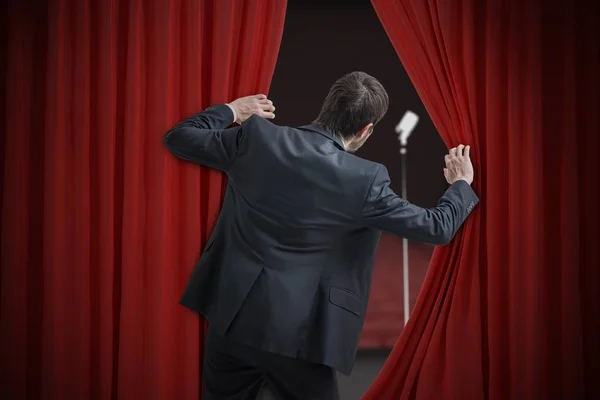It’s a tale as old as time: grade-school students sitting in a neat line on the front row of an auditorium, their teacher frantically moving to and fro trying to make sure everything is in order; the students on their best behavior, more likely than not because they are lost in thought regarding what lies ahead. Slowly the lights dim and parents watch anxiously as their beloved child approaches the center of the stage to perform – but then it happens – the child breaks down in hysterics, forcing the teacher to herd them back to their seat with a consoling hand. What happened? Stage fright, or performance anxiety, is an extremely common struggle for musicians and performers of all kinds. I myself have had to deal with some level of it for my entire tenure as a musician. In my experience, even though stage fright isn’t necessarily something that can be “cured,” the degree to which one experiences performance anxiety can be greatly diminished if its energy is redirected into other more productive trains of thought.
One of the best pieces of advice I have ever received came from Professor Tadeu Coelho of the University of North Carolina School of the Arts. Upon my admission that I dealt with great levels of performance anxiety, he replied “Ah, but what if you thought of your music not as a means of validating yourself, but as a gift that you are giving your audience. For example, think of Christmas morning, are you anxious when your loved ones open their gifts, or are you excited?” This proved to be deeply transformative to me because I have always struggled with blurring the line between my self-worth and how well I perform. While it’s healthy to find some level of identity in the thing in your life you work the hardest to achieve, it’s not healthy to pin all of your self-esteem on that thing. As C.S. Lewis once said, “Do not let your happiness depend on something you may lose.”

Being a musician is a demanding and holistic practice. I used to believe that music could be sequestered from the rest of my life – that I could box it away and make sure it was unaffected by any of the other issues I was trying to tackle, but this is simply not the case. When I wrestled with feelings of worthlessness, when I felt unworthy of love, dignity, or respect, try as I might, those feelings crept into my performances and filled me with abject dread. Every single time I walked up to the stage I felt like I was walking into war; war with myself, and war with a world that would never accept me if they knew me for who I really was. I dreaded the possibility that the audience might see right through me. I feared that something as vulnerable as bearing my soul through music and artistry would cause my whole house of cards to come tumbling down. I know that I’m not alone in these sentiments. Young people are in a phase of life where they are still coming into their own. They are developing into the people that they will, more or less, continue to be throughout their adult life. It can be wildly uncomfortable to stand in front of an audience of other people, knowing that human beings can be, by their very nature, very judgmental, and that they will judge a version of you that you do not yet fully understand. And yet that is part of what makes art so very powerful. At its best, art portrays to those around us a naked and honest picture of our very essence – exactly as we are – in that exact moment. Perhaps we will never be that person again, perhaps we will never quite think that thought, believe that viewpoint, feel that feeling, or contemplate that subject in the same way ever again, but we release it into the world regardless of how it may be perceived or whether it will be accepted. That is a gift; a thing to be treasured, a thing worth being excited to share!
As I settled into who I am, and accepted myself, flaws and all, I began to understand that we all feel insecurities, that we are all afraid of being wholly known, but even if being vulnerable opens us up to judgments about who we truly are, it’s also the only way we will ever experience love in its deepest and most profound form. As artists, we are given the beautiful responsibility of being vulnerable through creativity, through self expression, through the little micro decisions we make in the infinitesimal moments of a live performance, or the endless trips back to the drawing board to try and find that ever-elusive “perfection.” In that vulnerability our audience can be deeply moved by a display of brave and bold humanity, and we can set an example that helps others to feel safe in their vulnerability too.
In the words of Pasek and Paul, “Here’s to the ones who dream, foolish as they may seem.”
